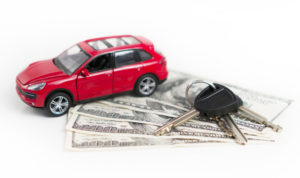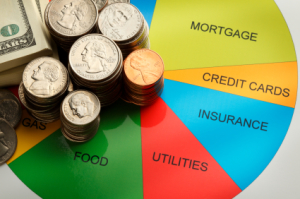Dear Liz: My brother is 54 and has always worked low-wage jobs. He owns a condo thanks to the help of our parents, and his monthly expenses are very low. He’s in a stable position. He does not have any retirement savings or really any other savings to speak of. Recently, he came into an inheritance of $62,000. He has asked my sister and I to help him make that grow and be secure until he retires and chooses to draw on it. What is the best way to help him grow this money in a safe way? We’d like it to be somewhat secured as we all are aware that the temptation to spend it now is strong.
Answer: The first step in investing is understanding your goal for the money and your timeline (how long until you may need the cash).
Your brother likely has at least two goals: an emergency fund and retirement savings.
Financial planners typically recommend an emergency fund equal to three to six months of expenses. A smaller amount can work for people with a lot of other resources, such as stocks they can sell, lines of credit they can borrow against or generous relatives who are willing to help. A larger amount might be smart for people with fewer resources or who might be out of work for extended periods.
Emergency funds need to be accessible, so the money should be in a safe, liquid place such as a bank account. To make the cash less tempting, your brother could consider opening a savings account with an online bank. These banks typically have no minimums and no fees, plus they pay a higher interest rate than their brick-and-mortar kin. Transferring the money to his checking account would typically take a few days, making it less easy to spend on impulse. Another option is to buy certificates of deposit to tie the money up for a set period of time. He can break into the CDs in an emergency but would have to forfeit some interest.
He can take more risk with his retirement funds, as he is likely at least a decade away from retirement. One option is to invest in a low-cost target date retirement fund, which gradually gets more conservative as the retirement date approaches.
Your brother can contribute up to $7,000 this year to an IRA or a Roth IRA. A Roth IRA may be the better option, since he’s unlikely to get much tax benefit from an IRA’s deductible contribution and Roth IRAs don’t have minimum distribution requirements.
He doesn’t have to limit his retirement savings to that annual contribution, however. He could consider investing more with a regular brokerage account and just mentally earmarking it for retirement.
 Today’s top story: What to do if your kid’s emergency fund is you? Also in the news: Frequently asked questions about Coronavirus unemployment, how 3D home tours are allowing buyers to keep their distance, and why you should make a COVID-19 backup plan before returning to your office.
Today’s top story: What to do if your kid’s emergency fund is you? Also in the news: Frequently asked questions about Coronavirus unemployment, how 3D home tours are allowing buyers to keep their distance, and why you should make a COVID-19 backup plan before returning to your office. Today’s top story: Dodge dealership dread with online used car sellers. Also in the news: What first-time home buyers should know about fixer-uppers, how to save for the future when it’s uncertain, and how long it takes for paid debt to be reported to credit bureaus.
Today’s top story: Dodge dealership dread with online used car sellers. Also in the news: What first-time home buyers should know about fixer-uppers, how to save for the future when it’s uncertain, and how long it takes for paid debt to be reported to credit bureaus.  Today’s top story: Straightforward answers to your Roth IRA questions. Also in the news: Disney vacation pros share budgeting tips for trips, how to jumpstart your financial plan by ditching this phrase, and what to ask yourself before dipping into your emergency fund.
Today’s top story: Straightforward answers to your Roth IRA questions. Also in the news: Disney vacation pros share budgeting tips for trips, how to jumpstart your financial plan by ditching this phrase, and what to ask yourself before dipping into your emergency fund.